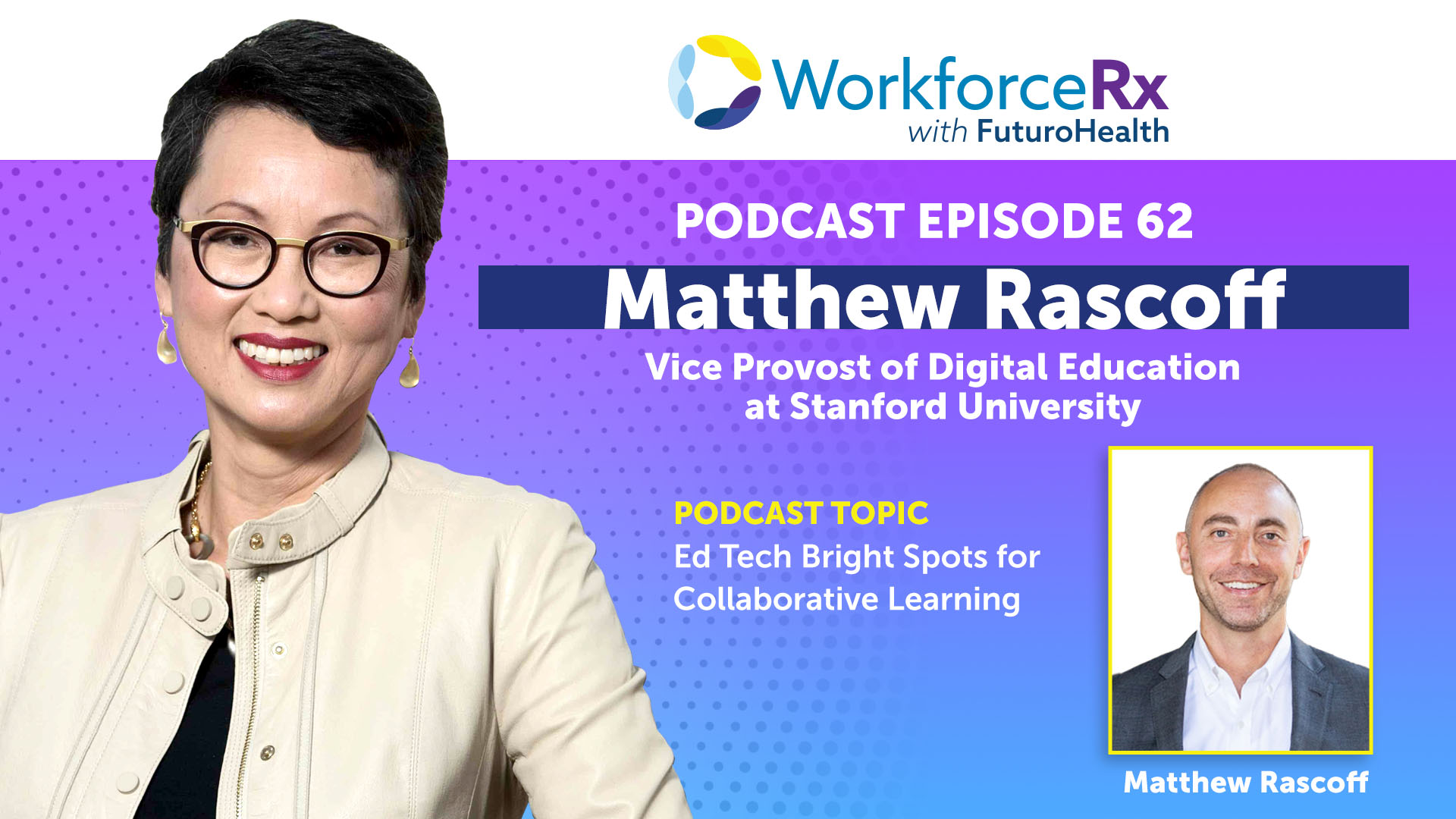While it will be years before researchers can render a verdict on how the wholesale shift to online learning during COVID impacted student performance, it’s already clear that in higher education, post-pandemic use of education technology and positively attitudes about it have both increased. Research also shows that professors and students expect more use of digital course materials and technology going forward. Our guest on this episode of WorkforceRx, Matthew Rascoff, is keeping a close eye on these trends as vice provost for Digital Education at Stanford University. “Part of the legacy of the pandemic is the plurality of approaches that are now available to instructors. It’s important to start with the needs of our learners and work our way backwards to the modality that will meet those needs most effectively,” he tells Futuro Health CEO Van Ton-Quinlivan. Rascoff is encouraged by what he calls a huge wave of entrepreneurship in learning technology, some of which will be advanced by his students at Stanford’s Graduate School of Business. “They have really amazing ideas for what that future is going to look like and I hope it is a more inclusive technology environment designed to serve learners who have been underserved in the past.” Learn about a new asynchronous platform to build learning communities; a free, online model for small group book discussions; and a non-profit “bootcamp” that builds both job skills and social capital. Plus, Matthew and Van discuss the emergence of AI tutors, and a program that offers Stanford courses for credit to Title I high schools across the country.
Continue reading
